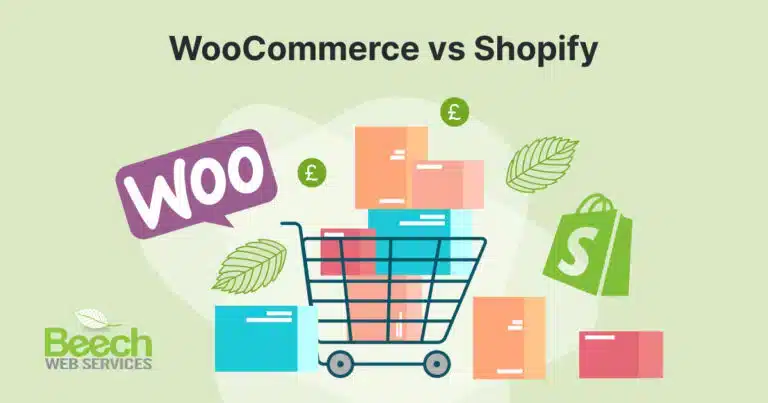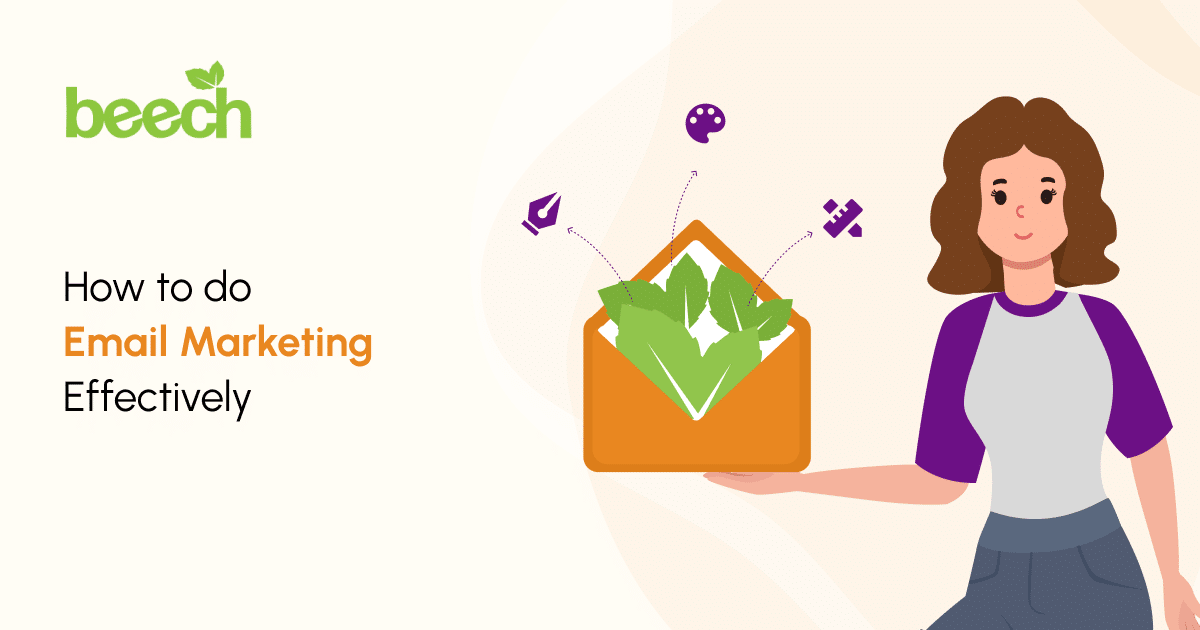In this digital age, establishing an online presence is vital for any business looking to thrive in the competitive e-commerce landscape. Two popular contenders in the market are WooCommerce and Shopify. Each platform comes with its unique set of features, making the decision of choosing the right one a crucial step for your e-commerce journey. Both platforms also have their own strengths and weaknesses, making it essential to weigh the pros and cons to make an informed decision.
In this blog, we’ll explore the benefits and drawbacks of each platform to help you make an informed decision for your business.
WooCommerce
WooCommerce is an open-source, customizable, and free eCommerce plugin designed for WordPress, a popular content management system (CMS). This plugin empowers website owners to transform their WordPress sites into fully functional online stores, allowing them to sell products and services directly to customers. Here are its key benefits and cons:
Benefits of WooCommerce
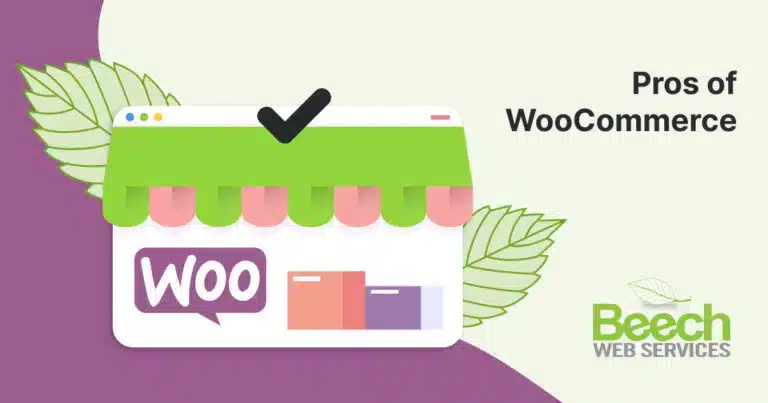
- Flexibility and Customisation: As an open-source platform, WooCommerce provides endless customisation possibilities. You can tailor your store’s design, functionality, and user experience to fit your brand and business needs. It grants users access to thousands of WordPress themes and plugins, allowing for unparalleled flexibility and adaptability.
- Cost-Effectiveness: WooCommerce itself is free to use, making it an attractive option for budget-conscious entrepreneurs. However, you might incur costs for themes, plugins, and hosting, depending on your business’ objectives and what you want this e-commerce website to achieve.
- Powerful Content Management System: If you already have a WordPress website or want to integrate an e-commerce store with a content-rich website, WooCommerce offers a seamless solution. We highly recommend WooCommerce to all our clients who wish to incorporate e-commerce into their website. WordPress and WooCommerce work together effortlessly to provide clients with exactly what their business needs to sell to customers online.
- Large Community and Plugin Support: WooCommerce has a massive user community, ensuring plenty of resources, tutorials, and third-party plugins are available to help enhance your store’s features.
- Reporting and Analytics: WooCommerce provides detailed reports and analytics to help you track sales, monitor performance, and make data-driven decisions. This is useful for any business that wants to determine their best plans to sell to customers online.
Cons of WooCommerce
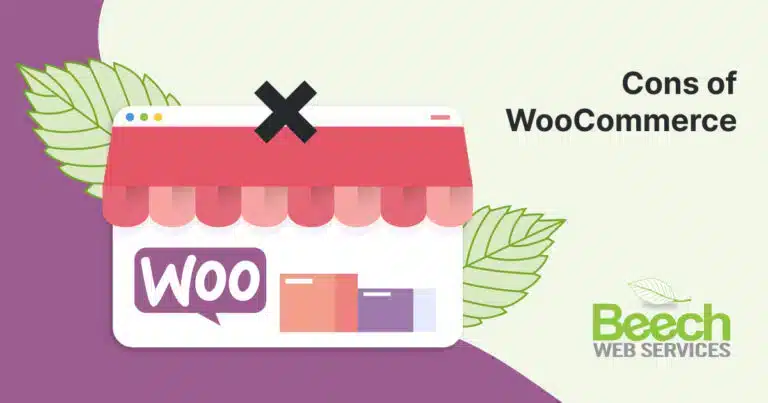
- Technical Knowledge Required: Setting up and managing a WooCommerce store may require some technical expertise, especially when dealing with hosting, security, and plugin compatibility. While it offers many customisation options, it requires a WordPress website as a foundation. This means that users familiar with WordPress might find it more comfortable, but those without prior experience might need to invest more time in the learning curve.
- Security and Maintenance: As an open-source platform, WooCommerce may be more vulnerable to security risks. You’ll need to stay on top of updates and implement security measures.
- Scalalility: While WooCommerce is suitable for small to medium-sized businesses, it may face challenges when scaling to handle high traffic or extensive product catalogues.
Performance and Speed of WooCommerce
Being a plugin for WordPress, WooCommerce benefits from the robust SEO capabilities of the WordPress platform. With the right setup and optimization, WooCommerce websites can achieve excellent Google performance. WordPress is known for its SEO-friendly structure, allowing users to customize meta tags, URLs, headings, and other on-page elements. However, the actual performance may vary depending on the theme and plugins used.
The speed of a WooCommerce store depends on the hosting provider, theme, and the number of plugins used. If you choose a reliable and fast web hosting provider, optimise your images, use a lightweight theme, and limit the number of plugins, you can achieve good loading times. However, since WooCommerce runs on WordPress and uses plugins, it might require more optimisation than other platforms.
Shopify
Shopify is a fully hosted e-commerce platform that simplifies the process of building and managing an online store. It offers a user-friendly interface, making it an excellent choice for entrepreneurs with limited technical experience. Let’s explore its benefits and cons:
Benefits of Shopify

- User-Friendly Interface: Shopify is known for its intuitive and user-friendly interface. You can effortlessly set up an online store without any technical expertise. Its drag-and-drop website builder and step-by-step setup process make it an ideal choice for beginners.
- Hosting and Security: With Shopify, hosting and security are managed for you, ensuring a safe and reliable shopping experience for your customers.
- Extensive App Store: Shopify’s App Store provides a wide range of plugins and extensions to extend your store’s functionality without requiring significant coding skills. These apps cover various aspects, such as marketing, analytics, inventory management, and customer support.
- Reliable Customer Support: Shopify offers 24/7 customer support, assisting you with any issues or questions that may arise during your e-commerce journey. This extensive customer support runs through various channels, including email, live chat, and phone.
- Payment Options: Shopify supports multiple payment gateways, allowing customers to make secure transactions using various payment methods, including credit/debit cards, PayPal, Apple Pay, and more.
Cons of Shopify

- Monthly Subscription Costs: Shopify operates on a subscription-based model, offering different plans ranging from basic to advanced features, which means ongoing monthly fees. While basic plans are affordable, additional transaction fees may apply for certain payment gateways. This may become costlier as your business grows, with transaction fees potentially adding up for each sale.
- Limited Customisation: Despite numerous themes and plugins, Shopify’s customisation options might be more restricted compared to an open-source platform like WooCommerce.
- Data Portability and Ownership: Migrating your store away from Shopify can be challenging, as you don’t have full control over the hosting and software. Any store built on Shopify will never completely belong to you, and there is always the risk that the website could be lost in the event of the platform going downhill.
Performance and Speed of Shopify
Shopify is designed with SEO in mind and provides a solid foundation for optimising an online store. It allows the user to customize meta tags, URLs, alt tags for images, and more. Shopify also has various SEO apps and tools available in their app store to further enhance your website’s SEO capabilities.
Shopify is a hosted platform, which means the website infrastructure is managed by Shopify itself. As a result, Shopify stores generally have good loading times. The platform is optimised for speed, and Shopify regularly updates its infrastructure to maintain its performance.
Which platform is the best for your ecommerce business?
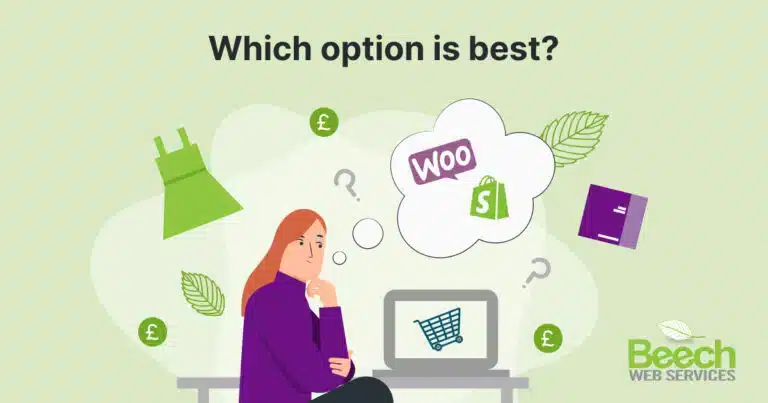
Ultimately, the choice between WooCommerce and Shopify depends on your specific business needs and preferences. If you value flexibility, open-source benefits, and have technical expertise, WooCommerce might be the better choice. On the other hand, if you seek a user-friendly, all-in-one solution with excellent support, Shopify could be the ideal fit. Its secure and reliable hosting, coupled with excellent customer support, ensures a smooth online shopping experience for your customers. Assess your requirements, budget, and long-term goals to make the right decision for your ecommerce venture.
In conclusion
Ultimately, the decision rests on your individual preferences and priorities as an online merchant. Whichever platform you choose, focusing on high-quality products, effective marketing strategies, and exceptional customer service will be the key to your e-commerce success. We offer a range of plans and options with any client who chooses to create an e-commerce website with us.
Get in touch with us to discuss those options today, lets create a website with your customer as the priority.
